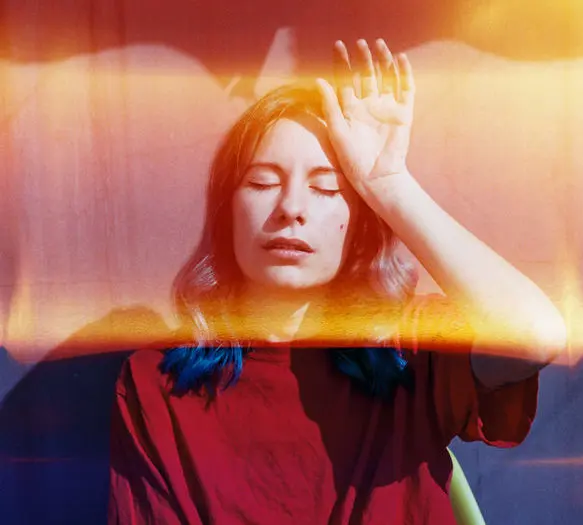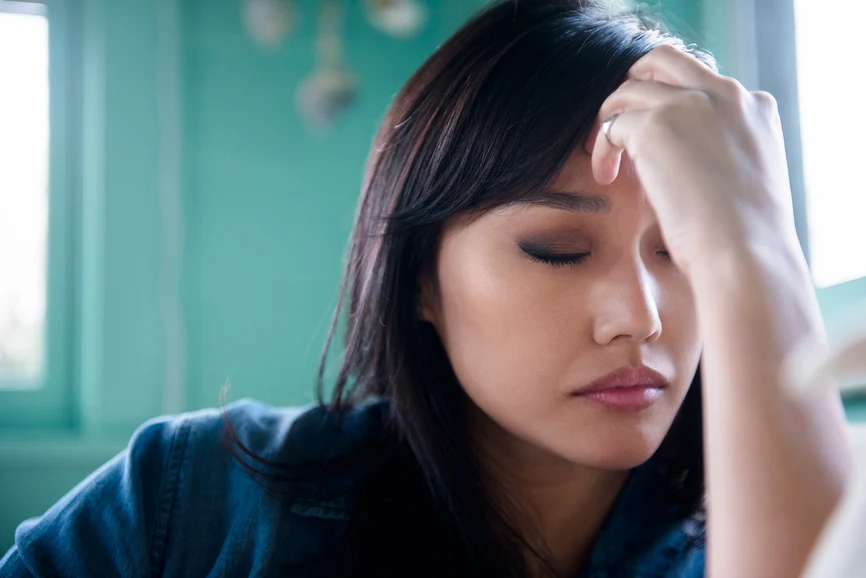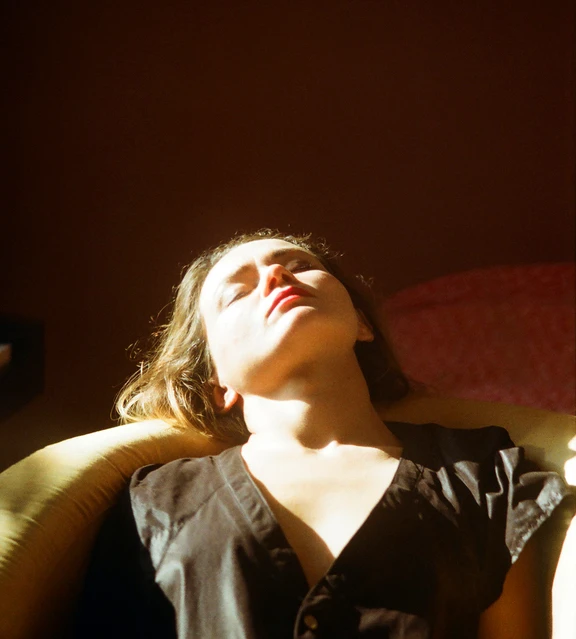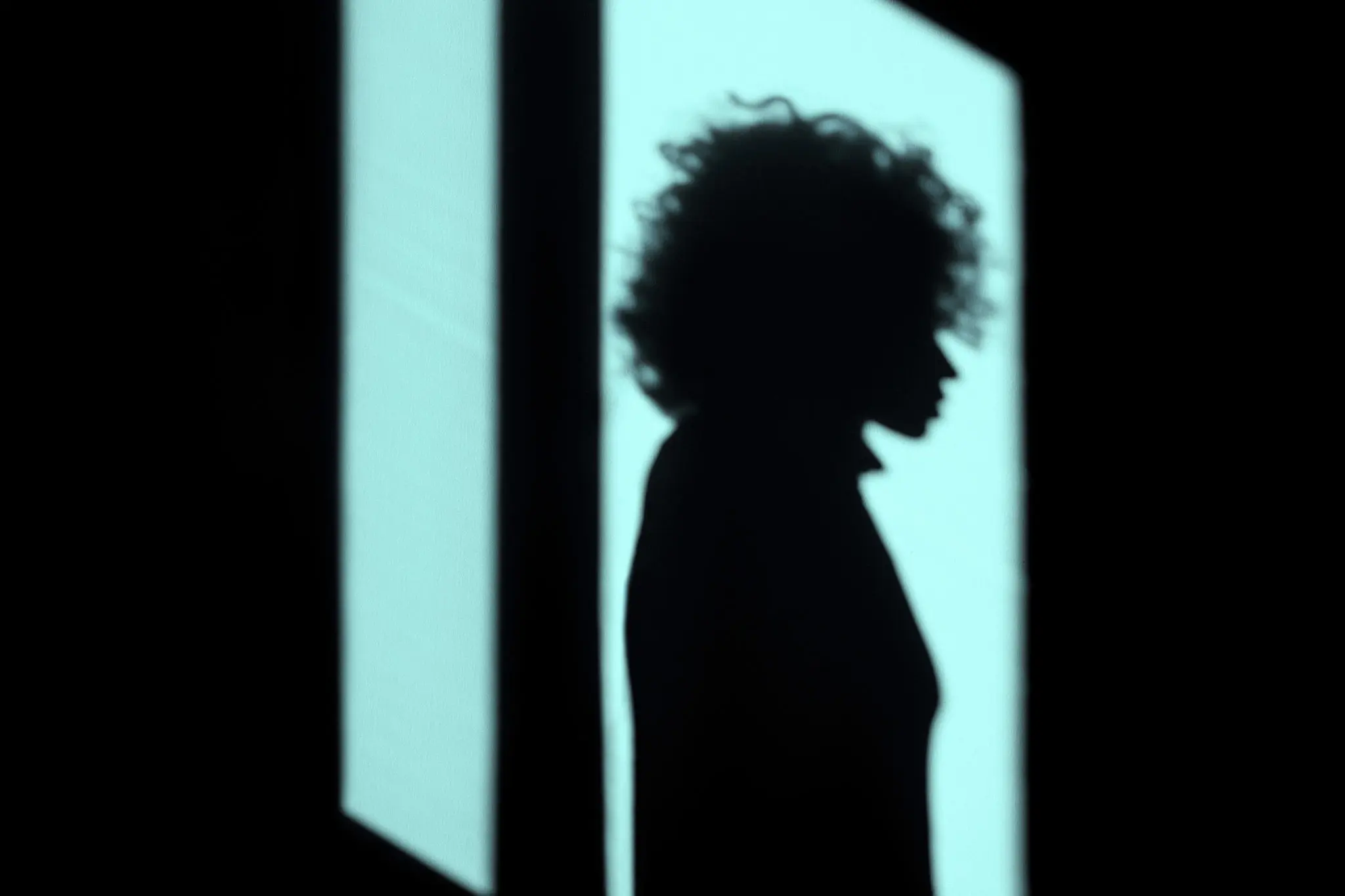Hot Flashes and Menopause: What’s the Connection?
5 minute read

Remember when you were constantly begging everyone around you to turn up the thermostat in the winter and sheesh, stop cranking the AC so high in the summer? Or maybe you always ran just a little bit hot.
Either way, you can no longer deny that something strange has been happening lately: Every now and then — or, if you’re unlucky, several times an hour — you feel a sudden, intense wave of heat crashing over your body. Your face and neck get red, you become drenched with sweat, and your heart feels like it’s beating more quickly.
Holy hot flash! If you’re in perimenopause — the transition that starts a few years before the total absence of your periods (menopause) — there’s a good chance you’re dealing with hot flashes. About 75 percent of women in North America experience hot flashes as they get closer to menopause. For some, the problem is mild or fleeting, but at least a quarter of those who get them are pretty miserable about it. In this article, we are going to discuss the hot flashes menopause relationship so you have a better idea of what to expect and how to treat them.

What is a hot flash, anyway?
Hot flashes, which doctors refer to as vasomotor symptoms, are perhaps the most infamous of menopause symptoms. Generally speaking, they tend to hit women who are approaching menopause, especially those who are in their final year before their periods disappear for good. But plenty of women get hot flashes several years before they officially hit menopause, and many continue to get them for many years afterward. That means you might very well be dealing with them for as long as 10 to 15 years (sorry!).
Hot flashes are pretty much what they sound like: You suddenly get hot, red, and sweaty. You might also feel anxious. So how long does a hot flash last? Well, it depends. The acute discomfort might be gone in a flash — pun intended — but sometimes it lasts for around 5 minutes, or even as long as an hour.
When hot flashes happen while you’re snoozing at night, they’re referred to as night sweats. Expect to wake up feeling drenched. This sudden feeling of burning heat on your neck, face, or body may cause wakeful nights if you are not taking the right treatments to help with your symptoms.

Why hot flashes happen
The exact reason why hot flashes happen to some women and not others isn’t well-understood, but scientists do know a few things about what’s going on inside the body when they do occur. A part of the brain called the hypothalamus is responsible for regulating body temperature and sending out signals designed to warm you up (by shivering) if you get too cold or cool you down (by sweating) if you get too hot.
People who experience hot flashes are believed to have a menopause-related reduction in their “thermoneutral zone” — the temperature range in which they feel comfortable and aren’t sweating or shivering. If you get knocked upward out of that range, which happens to many menopausal women who experience even a slight uptick in core body temperature, you need to cool down fast. In order to make that happen, blood flow to your skin increases, vessels widen (dilate), and you perspire. As sweat evaporates, you cool off. If that happens too quickly, you might even feel chilled right after the rush of intense heat passes.
The role estrogen plays
During perimenopause your hormones start going haywire and progesterone and estrogen levels in your body may fluctuate widely. Drops in estrogen are believed to be especially problematic as far as hot flashes are concerned: A dip in estrogen may mess with other hormones that control your body’s thermostat (hypothalamus) and make you think you’re too hot even when you’re not. That sets off a cascade of processes designed to cool you off ASAP: Your heart pumps faster, the blood vessels in your skin dilate, and your sweat glands release sweat.

Who gets hot flashes
There’s no clear rhyme or reason as to why some women get hot flashes and others don’t. That said, some people do seem to be more vulnerable than others. Your age and proximity to menopause is only part of the equation. Women who smoke are more likely to suffer from hot flashes, as are those whose body mass index (BMI) falls into the obese range. Race and ethnic background might be a factor, too: Black women are more apt to have hot flashes compared to women of other races, whereas Asian women are the least likely to have this problem.
Hot flashes and other menopause symptoms
Although hot flashes are the most well-known menopause symptom, they’re hardly the only one. Women who are in perimenopause or have recently gone through the menopausal transition might also experience insomnia, night sweats, vaginal dryness, thinning hair, weight gain and mood changes.
With the exception of periods that become irregular (until they stop completely at menopause), not every woman will experience all or even any of these symptoms.
If you have hot flashes, it doesn’t necessarily mean that you’re more likely to have additional symptoms, with a few exceptions. Since night sweats are, by definition, hot flashes that happen at night, women who get hot flashes during the daytime are probably more apt to also have night sweats. It’s also worth noting that there’s a link between hot flashes and depression, and the association appears to run in both directions: Women who suffer from depression are more likely to develop hot flashes when they get close to menopause; additionally, women who are not depressed but experience hot flashes are more likely to become depressed after.
What to do about hot flashes and menopause
If your hot flashes are infrequent or mild, you don’t need to do anything. Hot flashes aren’t dangerous, though they certainly can be uncomfortable as well as embarrassing. (Imagine running out of a meeting because your face is suddenly flushed or having your evening gown get soaked during a special event.)
If the sudden feeling of a hot flash is distressing to you — no matter how frequently or infrequently they occur — talk to your gynecologist about whether specific lifestyle changes, herbal supplements, menopause remedies, or prescription medication might help.
Prescription hormone therapy (estrogen, often combined with progesterone to protect against uterine cancer), tends to be the most effective option for treating hot flashes. When a low dose is used for only a short period, it tends to be relatively safe. However, women who are at high risk for blood clots, breast cancer, gallstones, and heart disease are usually best off avoiding it.
If your hot flashes are bad but hormone therapy isn’t a good choice for you, your doctor might instead suggest different treatments that have been shown to help with hot flashes. Such drugs include antidepressants (SSRIs) like paroxetine (Paxil), the blood pressure drug clonidine (Catapres), and the antiseizure drug gabapentin (Neurontin).
Experts agree that for the vast majority of healthy women, supplementing your body's natural hormones is the safest and most effective treatment to ease the vasomotor symptoms of menopause, including hot flashes and night sweats. Head to our product page to check out your options. A menopause-trained doctor will review your choices to make sure you get the right treatment.
Sources
https://www.menopause.org/for-women/menopause-faqs-hot-flashes
https://www.hopkinsmedicine.org/health/wellness-and-prevention/did-i-just-have-a-hot-flash-im-44
https://www.mayoclinic.org/diseases-conditions/hot-flashes/symptoms-causes/syc-20352790
https://www.breastcancer.org/tips/menopausal/treat/hot-flashes/causes
https://womensmentalhealth.org/posts/hot-flashes-or-depression-which-comes-first/
https://www.health.harvard.edu/womens-health/dealing-with-the-symptoms-of-menopause
Subscribe
Go ahead, you deserve to